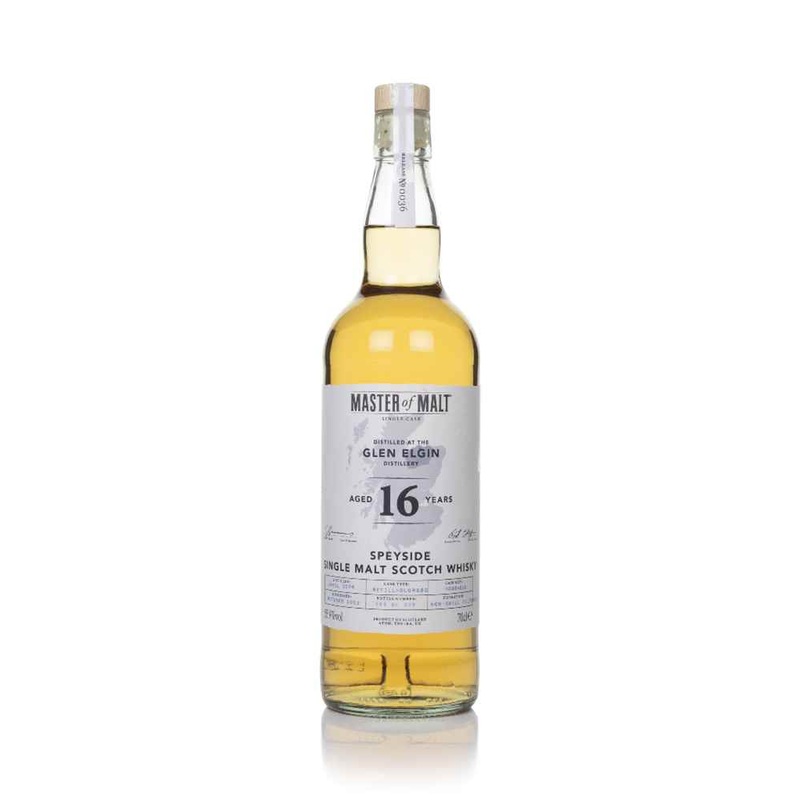
From the Glen Elgin distillery, nestled in the tiny Speyside hamlet of Fogwatt comes this 16-year-old single malt.
Order from the Largest & Most Trusted Premium Spirits Marketplace!
Featured in
ALL ORDERS PLACED ARE GUARANTEED and WILL NOT be cancelled like with other retailers. Many other small liquor store sites will end up cancelling your order due to the high demand and unavailability.
Size: 700ML
Proof: 111.8 (55.9%ABV)
Origin: Scotland
Distillery: Glen Elgin
From the Glen Elgin distillery, nestled in the tiny Speyside hamlet of Fogwatt comes this 16-year-old single malt. Distilled in 2006, the whisky was later treated to a stay in an oloroso hogshead before bottling in 2022, when we felt it had reached liquid perfection, and added 336 bottles to our collection of Master of Malt exclusive releases.
Nose: Zesty, creamy notes of lemon posset and yellow plum. Buttery madeleines, flaked almond, and sweet key lime pie with a ginger snap base.
Palate: A glorious dollop of clotted cream counters fragrant green peppercorns, silky honey, and syrupy fruit suggestions of boiled sweeties. Peaches and cream.
Finish: Sweet shop notes linger with chalk candies and barley sugars. Things remain creamy with coatings of vanilla, and beneath, delicate woody spice hovers in perfect harmony.
The buildings of the Glen Elgin distillery are rather modest, this being due to a lack of funding when it was first built in 1898. The whisky distillery was designed by the renowned Charles Doig, who heralded from the namesake town, Elgin. Despite the size and the decidedly low annual production capacity of 1.83 million litres, the Glen Elgin distillery enjoys world wide popularity, selling nearly nine million bottles a year. The building was financed by the North of Scotland banker James Carle and William Simpson of Glenfarclas fame. Having begun distillation at the turn of the 20th century, Glen Elgin closed down just months later. In 1901, the distillery was acquired at auction by the Glen Elgin-Glenlivet Distillery Company for 4,000. Production began once more, though it only lasted from 1904 to 1905. It was not until Scottish Malt Distillers acquired Glen Elgin in 1930 that its fate improved. To this day, the bulk of whisky production is used for blending, particularly in the White Horse blends; Scottish Malt Distillers having licensed the distillery to White Horse shortly after purchase. In 1964, a further four stills were installed, bringing the total to six. Substantial renovations were carried out on the site and today the 1960s aesthetics remain.
